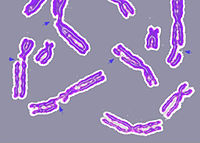
Highly conductive, transparent and metal-free electrodes with a PEDOT:PSS/SWNT bilayer for high-performance organic thin film transistors
Sign Up to like & getrecommendations! Published in 2019 at "Organic Electronics"
DOI: 10.1016/j.orgel.2019.01.008
Abstract: Abstract Conductive organic materials including polymers, small molecules, and carbon nanotubes (CNTs) are a promising alternative to inorganic materials in electronic devices. Conventionally, organic electrodes employing CNTs are designed using functionalization of their surfaces or… read more here.
Keywords: pedot pss; swnt; thin film; film transistors ... See more keywords

Interfacial Energy Barrier Tuning for Enhanced Thermoelectric Performance of PEDOT Nanowire/SWNT/PEDOT:PSS Ternary Composites
Sign Up to like & getrecommendations! Published in 2019 at "ACS Applied Energy Materials"
DOI: 10.1021/acsaem.9b01834
Abstract: Ternary composites based on single-walled carbon nanotube (SWNT), poly(3,4-ethylenedioxythiophene):poly(styrenesulfonate) (PEDOT:PSS), and PEDOT nanowire (NW) were prepared by solution mixing methods. Studies show that Seebeck coefficient of the composites with SWNT and PEDOT:PSS could be further… read more here.
Keywords: pedot; energy; ternary composites; pedot pss ... See more keywords

Discovery of DNA-Carbon Nanotube Sensors for Serotonin with Machine Learning and Near-infrared Fluorescence Spectroscopy.
Sign Up to like & getrecommendations! Published in 2021 at "ACS nano"
DOI: 10.1021/acsnano.1c08271
Abstract: DNA-wrapped single walled carbon nanotube (SWNT) conjugates have distinct optical properties leading to their use in biosensing and imaging applications. A critical limitation in the development of DNA-SWNT sensors is the current inability to predict… read more here.
Keywords: dna; response; machine; fluorescence ... See more keywords

Defect structure evolution of polyacrylonitrile and single wall carbon nanotube nanocomposites: a molecular dynamics simulation approach
Sign Up to like & getrecommendations! Published in 2020 at "Scientific Reports"
DOI: 10.1038/s41598-020-68812-7
Abstract: In this study, molecular dynamics simulations were performed to understand the defect structure development of polyacrylonitrile-single wall carbon nanotube (PAN-SWNT) nanocomposites. Three different models (control PAN, PAN-SWNT(5,5), and PAN-SWNT(10,10)) with a SWNT concentration of 5… read more here.
Keywords: defect structure; molecular dynamics; polyacrylonitrile single; structure ... See more keywords

Silencing of the Transmembrane Transporter (swnT) Gene of the Fungus Slafractonia leguminicola Results in a Reduction of Mycotoxin Transport
Sign Up to like & getrecommendations! Published in 2023 at "Journal of Fungi"
DOI: 10.3390/jof9030370
Abstract: Slafractonia leguminicola infects red clover and other legumes, causing black patch disease. This pathogenic fungus also produces two mycotoxins, slaframine and swainsonine, that are toxic to livestock grazing on clover hay or pasture infested with… read more here.
Keywords: swnt; slafractonia leguminicola; transporter; mycotoxin transport ... See more keywords

High-Performance Ultraviolet Photodetector Based on a Zinc Oxide Nanoparticle@Single-Walled Carbon Nanotube Heterojunction Hybrid Film
Sign Up to like & getrecommendations! Published in 2020 at "Nanomaterials"
DOI: 10.3390/nano10020395
Abstract: A hybrid film consisting of zinc oxide nanoparticles (ZnO NPs) and carbon nanotubes (CNTs) is formed on a glass substrate using a simple and swift spin coating process for the use in ultraviolet photodetectors (UV… read more here.
Keywords: zno; zinc oxide; performance; film ... See more keywords

Photothermal Desorption of Toluene from Carbonaceous Substrates Using Light Flash
Sign Up to like & getrecommendations! Published in 2022 at "Nanomaterials"
DOI: 10.3390/nano12040662
Abstract: Millions of workers are occupationally exposed to volatile organic compounds (VOCs) annually. Current exposure assessment techniques primarily utilize sorbent based preconcentrators to collect VOCs, with analysis performed using chemical or thermal desorption. Chemical desorption typically… read more here.
Keywords: flash; toluene; carbonaceous substrates; swnt ... See more keywords